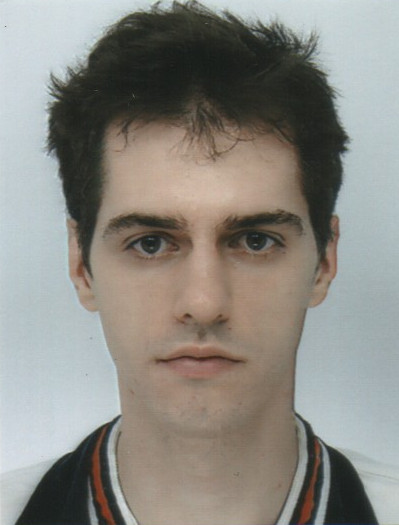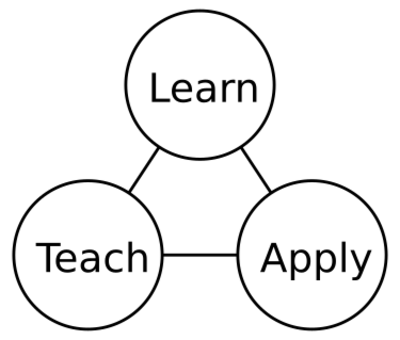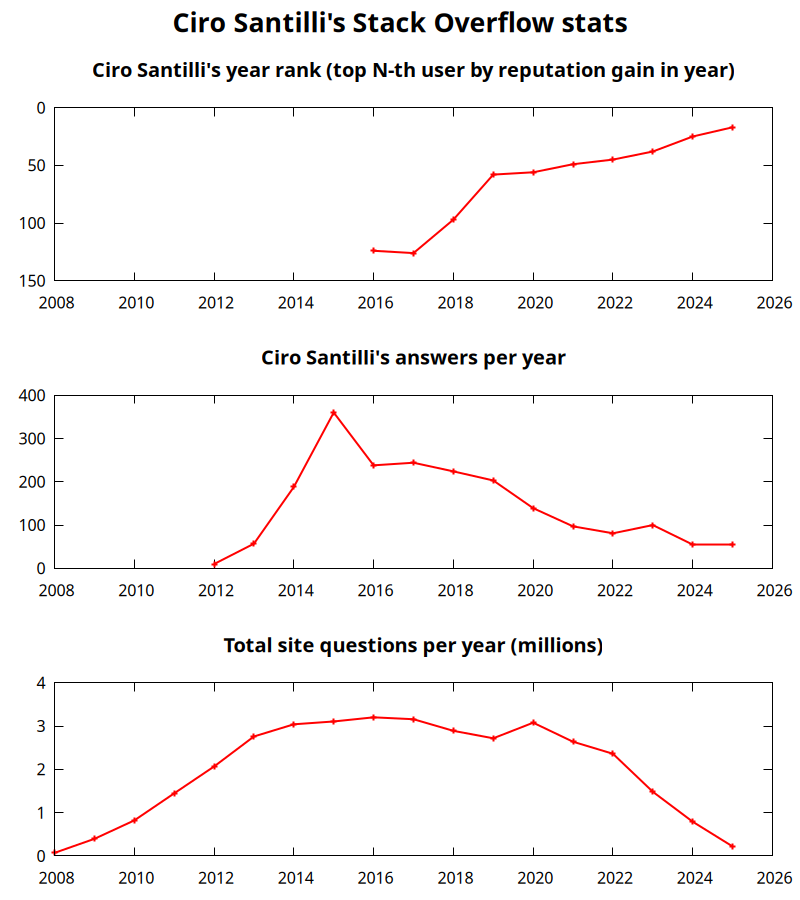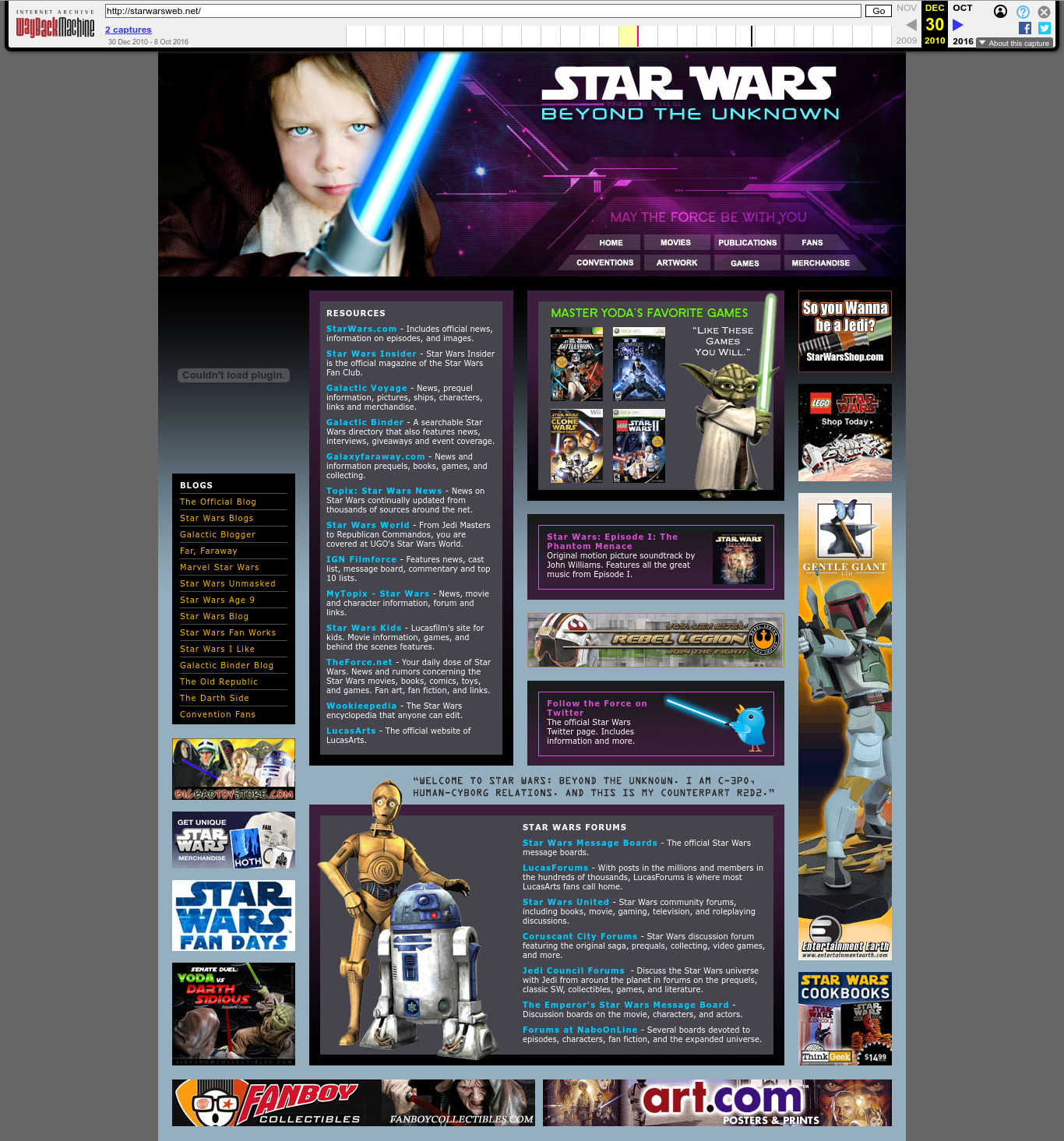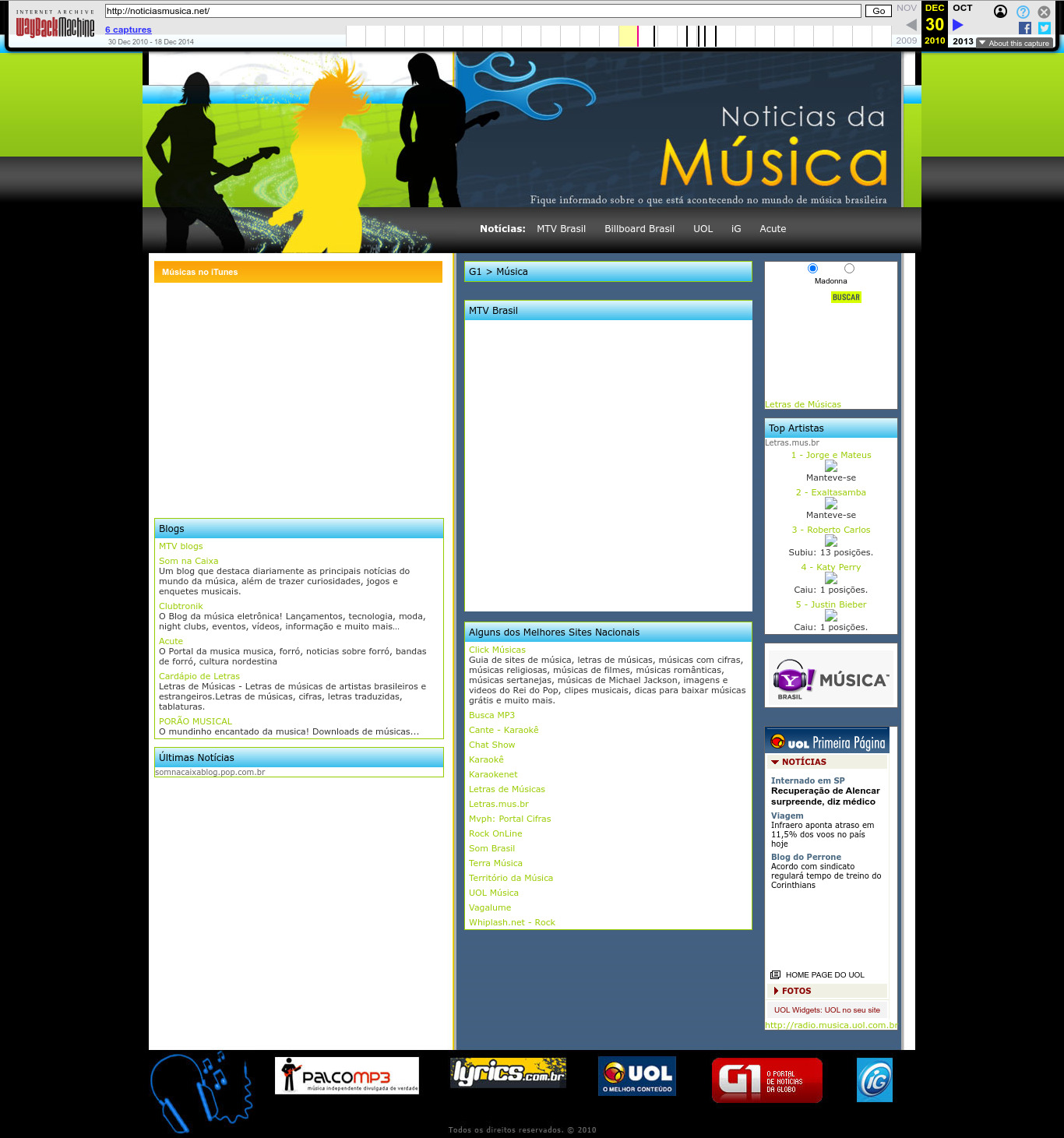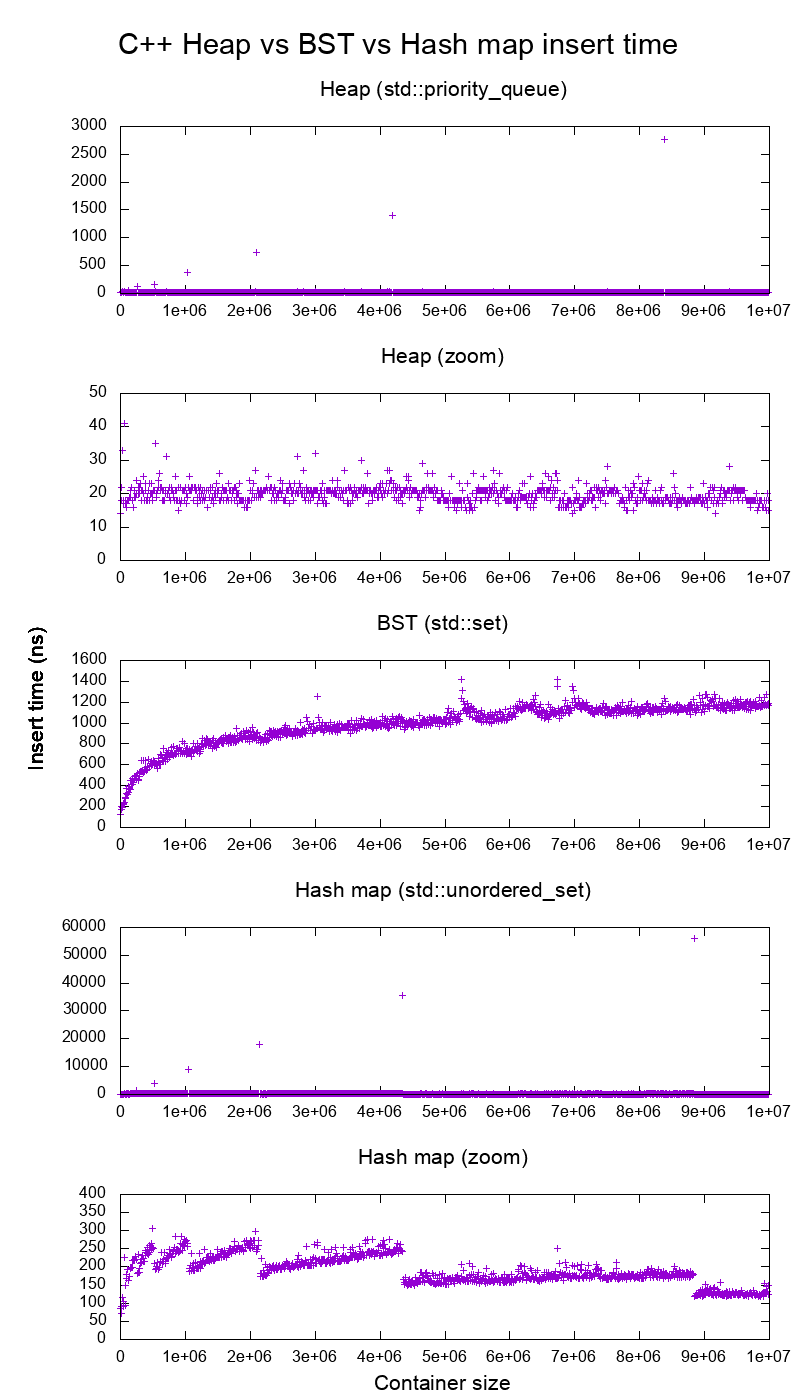Home Updated 2025-12-02
Check out: OurBigBook.com, the best way to publish your scientific knowledge. It's an open source note taking system that can publish from lightweight markup files in your computer both to a multi-user mind melding dynamic website, or as a static website. It's like Wikipedia + GitHub + Stack Overflow + Obsidian mashed up. Source code: github.com/ourbigbook/ourbigbook.
Sponsor me to work on this project. For 400k USD I will quit my job or not get a new job and work on OurBigBook full time for a second year to try and kickstart The Higher Education Revolution. Status: ~44k / 400k USD. At 4M USD I retire/tenure and work on open STEM forever. How to donate: Section "Sponsor Ciro Santilli's work on OurBigBook.com".
I first quit my job 1st June 2024 to work on the project for 1 year after I reached my initial 100k goal mostly via a 1000 Monero donation. For a second follow up year, I increased my requirement to 400k USD to give me more peace of mind as I'm destroying my career in the process. A second year greatly improve chances of success: on year one I improved my tech, on year two I want to come guns blazing to solve courses and get users.
Mission: to live in a world where you can learn university-level mathematics, physics, chemistry, biology and engineering from perfect free open source books that anyone can write to get famous. More rationale: Section "OurBigBook.com"
Explaining things is my superpower, e.g. I was top user #39 on Stack Overflow in 2023[ref][ref] and I have a few 1k+ star educational GitHub repositories[ref][ref][ref][ref]. Now I want to bring that level of awesomeness to masters level Mathematics and Physics. But I can't do it alone! So I created OurBigBook.com to allow everyone to work together towards the perfect book of everything.
My life's goal is to bring hardcore university-level STEM open educational content to all ages. Sponsor me at github.com/sponsors/cirosantilli starting from 1$/month so I can work full time on it. Further information: Section "Sponsor Ciro Santilli's work on OurBigBook.com". Achieving what I call "free gifted education" is my Nirvana.
This website is written in OurBigBook Markup, and it is published on both cirosantilli.com (static website) and outbigbook.om/cirosantilli (multi-user OurBigBook Web instance). Its source code is located at: github.com/cirosantilli/cirosantilli.github.io and also at
cirosantilli.com/_dir and it is licensed under CC BY-SA 4.0 unless otherwise noted.To contact Ciro, see: Section "How to contact Ciro Santilli". He likes to talk with random people of the Internet.
GitHub | Stack Overflow | LinkedIn | YouTube | Twitter | Wikipedia | Zhihu 知乎 | Weibo 微博 | Other accounts
Besides that, I'm also a freedom of speech slacktivist and recreational cyclist. I like Chinese traditional music and classic Brazilian pop. Opinions are my own, but they could be yours too. Tax the rich.
Let's create an educational system with:
- no distinction between university and high school, students just go as fast as they can to what they really want without stupid university entry exams
- fully open source learning material
- on-demand examinations that anyone can easily take without prerequisites
- granular entry selection only for space in specific laboratories or participation in specific novel research projects
I offer:
- online private tutoring for:
- any STEM university course
- passionate younger STEM students (any age) who want to learn university level material and beyond. Can your kid be the next Fields Medalist or Nobel Prize winner? I'm here to help, especially if you are filthy rich! I focus moving students forward as fast as they want on and on producing useful novel tutorials and results
Let your child be my Emile, and me be their Adolfo Amidei, and let's see how far they can go! I will help take your child:and achieve their ambitious STEM goals!- into the best universities
- into the best PhD programs
- educational consulting for institutions looking to improve their STEM courses
- do you know that course or teacher that consistently gets bad reviews every year? I'll work with the teacher to turn the problem around!
- are you looking to create a consistent open educational resources offering to increase your institutions internationally visibility? I can help with that too.
My approach is to:For minors, parents are welcome to join video calls, and all interactions with the student will be recorded and made available to parents.
- propose interesting research projects. The starting point is always deciding the end goal: Section "Backward design"
- learn what is needed to do the project together with the student(s)
- publish any novel results or tutorials/tools produced freely licensed online, and encourage the student to do the same (Section "Let students learn by teaching", digital garden)
I have a proven track of explaining complex concepts in an interesting and useful way. I work for the learner. Teaching statement at: Section "How to teach". Pricing to be discussed. Contact details at: Section "How to contact Ciro Santilli".
I am particularly excited about pointing people to the potential next big things, my top picks these days are:I am also generally interested in:
- quantum computing
- AGI research, in particular AI code generation, automated theorem proving and robotics
- assorted molecular biology technologies
- 20th century physics, notably AMO and condensed matter
- the history of science, and in particular trying to look at seminal papers of a field
Ciro Santilli's amazing Stack Overflow profile
. Ciro contributes almost exclusively by answering question he Googles into out of his own need, and never by refreshing the newest question of big tags for low hanging fruit! More information at: Section "Ciro Santilli's Stack Overflow contributions".Ciro Santilli's Stack Overflow stats
. Further methodology details at: Figure "Ciro Santilli's Stack Overflow stats".The problem with education by Ciro Santilli
. Source. In this video Ciro Santilli exposes his fundamental philosophy regarding why Education is broken. This philosophy was the key motivation behind the failed OurBigBook Project.OurBigBook Web topics demo
. Source. The OurBigBook topic feature allows users to "merge their minds" in a "sort by upvote"-stack overflow-like manner for each subject. This is the killer feature of OurBigBook Web. More information at: docs.ourbigbook.com/ourbigbook-web-topics.OurBigBook dynamic article tree demo
. Source. The OurBigBook dynamic tree feature allows any of your headers to be the toplevel h1 header of a page, while still displaying its descendants. SEO loves this, and it also allows users to always get their content on the correct granularity. More information at: docs.ourbigbook.com/ourbigbook-web-dynamic-article-tree.OurBigBook local editing and publishing demo
. Source. With OurBigBook you can store your content as plaintext files in a Lightweight markup, and then publish that to either OurBigBook.com to get awesome multi-user features, or as a static website where you are in full control. More information at: docs.ourbigbook.com/publish-your-content.Top Down 2D continuous game with Urho3D C++ SDL and Box2D for Reinforcement learning by Ciro Santilli (2018)
Source. More information: Section "Ciro's 2D reinforcement learning games". This is Ciro's underwhelming stab at the fundamental question: Can AGI be trained in simulations?. This project could be taken much further.Water Margin tribute to Chinese dissidents by Ciro Santilli (2022)
Source. Part of Ciro Santilli's campaign for freedom of speech in China, see also: cirosantilli.com/china-dictatorship/water-margin.Lenovo ThinkPad T430 running a BIOS hello world
. This uses Ciro Santilli's project x86 bare metal examples with source code at: github.com/cirosantilli/x86-bare-metal-examplesLinux Kernel Module Cheat presentation
. Source. This project, with source code at: github.com/cirosantilli/linux-kernel-module-cheat, aims to be the perfect emulation setup to study and develop the Linux kernel, kernel modules, QEMU, gem5 as well as x86_64, ARM userland and baremetal assembly and more.My Bitcoin inscription museum by Ciro Santilli
. Source. Introductory video to Section "Cool data embedded in the Bitcoin blockchain". -------------------------------------
| Force of Will 3 U U |
| --------------------------------- |
| | //////////// | |
| | ////() ()\////\ | |
| | ///_\ (--) \///\ | |
| | ) //// \_____///\\ | |
| | ) \ / / / / | |
| | ) / \ | | / _/ | |
| | ) \ ( ( / / / / \ | |
| | / ) ( ) / ( )/( ) \ | |
| | \(_)/(_)/ /UUUU \ \\\/ | | |
| .---------------------------------. |
| Interrupt |
| ,---------------------------------, |
| | You may pay 1 life and remove a | |
| | blue card in your hand from the | |
| | game instead of paying Force of | |
| | Will's casting cost. Effects | |
| | that prevent or redirect damage | |
| | cannot be used to counter this | |
| | loss of life. | |
| | Counter target spell. | |
| `---------------------------------` |
| l
| Illus. Terese Nelsen |
-------------------------------------Code 1.
ASCII art of a Force of Will Magic: The Gathering card inscribed in the Bitcoin blockchain
. Artist unknown, uploaded December 2014. Part of Section "Cool data embedded in the Bitcoin blockchain" where Ciro Santilli maintains a curated list of such interesting inscriptions.
This was a small project done by Ciro for artistic purposes that received some attention due to the incredible hype surrounding cryptocurrencies at the time. Ciro Santilli's views on cryptocurrencies are summarized at: Section "Are cryptocurrencies useful?".
YellowRobot.jpgJPG image fully embedded in the Bitcoin blockchain depicting some kind of cut material art depicting a yellow robot, inscribed on January 29, 2017.
Ciro Santilli found this image and others during his research for Section "Cool data embedded in the Bitcoin blockchain" by searching for image fingerprints on every transaction payload of the blockchain with a script.
The image was uploaded by EMBII, co-creator of the AtomSea & EMBII upload mechanism, which was responsible for a large part of the image inscriptions in the Bitcoin blockchain.
The associated message reads:This is one of Ciro Santilli's favorite AtomSea & EMBII uploads, as it perfectly encapsules the "medium as an art form" approach to blockchain art, where even non-novel works can be recontextualized into something interesting, here depicting an opposition between the ephemeral and the immutable.
Chiharu [EMBII's Japanese wife] and I found this little yellow robot while exploring Chicago. It will be covered by tar or eventually removed but this tribute will remain. N 41.880778 E -87.629210
2010 Wayback Machine archive of starwarsweb.net
. This website was used as one of the CIA 2010 covert communication websites, a covert system the CIA used to communicate with its assets. More details at: Section "CIA 2010 covert communication websites".
Ciro Santilli had some naughty OSINT fun finding some of the websites of this defunct network in 2023 after he heard about the 2022 Reuters report on the matter, which for the first time gave away 7 concrete websites out of a claimed 885 total found. As of November 2023, Ciro had found about 350 of them.
2010 Wayback Machine archive of noticiasmusica.net
. This is another website that was used as one of the CIA 2010 covert communication websites. This website is written in Brazilian Portuguese, and therefore suggests that the CIA had assets in Brazil at the time, and thus was spying on a "fellow democracy".
Although Snowden's revelations made it extremely obvious to the world that the USA spies upon everyone outside of the Five Eyes, including fellow democracies, it is rare to have such a direct a concrete proof of it visible live right on the Wayback Machine. Other targeted democracies include France, Germany, Italy and Spain. More details at: USA spying on its own allies.
This investigative report by Ciro Santilli was featured on the Daily Mail after 404 Media reported on it in 2025.
Diagram of the fundamental theorem on homomorphisms by Ciro Santilli (2020)
Shows the relationship between group homomorphisms and normal subgroups.
Used in the Stack Exchange answer to What is the intuition behind normal subgroups? One of Section "The best articles by Ciro Santilli".
Spacetime diagram illustrating how faster-than-light travel implies time travel by Ciro Santilli (2021)
Used in the Stack Exchange answer to Does faster than light travel imply travelling back in time?. One of Section "The best articles by Ciro Santilli".Average insertion time into heaps, binary search tree and hash maps of the C++ standard library by Ciro Santilli (2015)
Source. Used in the Stack Overflow answer to Heap vs Binary Search Tree (BST). One of Section "The best articles by Ciro Santilli".Birch and Swinnerton-Dyer conjecture in two minutes by Ciro Santilli
. Source. Quick and direct explanation of the statement of the BSD conjecture for people who know basic university mathematics. This is one of the Millennium Prize Problems, and you will get a million dollars if you can solve it! This therefore falls in the Simple to state but hard to prove of Ciro Santilli's the beauty of mathematics aesthetics.Top view of an open Oxford Nanopore MinION
. Source. This is Ciro Santilli's hand on the Wikipedia article: en.wikipedia.org/wiki/Oxford_Nanopore_Technologies. He put it there after working a bit on Section "How to use an Oxford Nanopore MinION to extract DNA from river water and determine which bacteria live in it" :-) And he would love to document more experiments like that one Section "Videos of all key physics experiments", but opportunities are extremely rare.A quick 2D continuous AI game prototype for reinforcement learning written in Matter.js, you can view it on a separate page at cirosantilli.com/_raw/js/matterjs/examples.html#top-down-asdw-fixed-viewport. This is a for-fun-only prototype for Ciro's 2D reinforcement learning games, C++ or maybe Python (for the deep learning ecosystem) seems inevitable for a serious version of such a project. But it is cute how much you can do with a few lines of Matter.js!
HTML snippet:
<iframe src="_raw/js/matterjs/examples.html#top-down-asdw-fixed-viewport" width="1000" height="850"></iframe> Aratu Week 2024 Talk by Ciro Santilli: My Best Random Projects Motivation: university sucks real bad right now Created 2024-09-06 Updated 2025-07-16
The ultimate goal: create an university:
- without entry exams
- without course requirements
- where all material is free and available online: lecture notes, problem sheets, past exam papers
- where you only pay to take certification exams for the courses that you care about
The technical goal:
Get university students to write what they learn. All university material should be amazing and free!
The how:
Create the ultimate personal knowledge base software with multi-user mind-melding features.
CC BY-NC-SA Updated 2025-07-16
Too restrictive. People should be able to make money from stuff.
The definition of "commercial" could also be taken in extremely broad senses, making serious reuse risky in many applications.
Notably, many university courses use it, notably MIT OpenCourseWare. Ciro wonders if it is because academics are wary of industry, or if they want to make money from it themselves. This reminds Ciro of a documentary he watched about the origins of one an early web browsers in some American university. And then that university wanted to retain copyright to make money from it. But the PhDs made a separate company nonetheless. And someone from the company rightly said something along the lines of:TODO source.
The goal of universities is to help create companies and to give back to society like that. Not to try and make money from inventions.
The GNU project does not like it either www.gnu.org/licenses/license-list.en.html#CC-BY-NC:
en.wikipedia.org/wiki/Creative_Commons_NonCommercial_license#Defining_%22Noncommercial%22 also talks about the obvious confusion this generates: nobody can agree what counts as commercial or not!
In September 2009 Creative Commons published a report titled, "Defining 'Noncommercial'". The report featured survey data, analysis, and expert opinions on what "noncommercial" means, how it applied to contemporary media, and how people who share media interpret the term. The report found that in some aspects there was public agreement on the meaning of "noncommercial", but for other aspects, there is wide variation in expectation of what the term means.
Ciro Santilli's self perceived compassionate personality Updated 2025-07-16
Ciro Santilli fantasizes that he is more compassionate than average.
He feels that this manifests itself notably through his desire/ability to create amazing documentation content and notably for free.
Also related is Ciro's worry about social inequality and how to reduce it.
In school, especially before university, Ciro felt that he always treated "the ugly/unpopular" (it is horrifying that such perception of a person exists! but true) girls really well, which led some of them to like him romantically. In part this was de to Ciro Santilli's self perceived compassionate personality and enter through the narrow gate approach to life. But was also partly Ciro's fault, he should have been clearer that he was not truly interested, but he was also lonely, curious about how it was like having girlfriend, and it feels good to have someone like you. This was a sin.
He also feels like he treated working class employees (and don't forget, this is Brazil, e.g. his building janitors in São Paulo lived in the nearby favela!) with extreme equality, sometimes even better, than other richer people.
One thing Ciro does not do however is give money to beggars on the street. Those beggars do make Ciro feel extremely bad for not giving, but he feels that they must be drug addicts to be out on the street like that, and that this money would be better invested in OurBigBook.com. But maybe this is just wrong. How fucked up the world is, how far away are we from unconditional basic income???
Once Ciro was hanging out with one of his father's on a group tourist, and she was a lesbian borderline/actually activist social reform person, and she promptly gave to a beggar without batting an eye, and that made a big impression on Ciro, making him feel even worse about himself.
It must be said that at times this compassion can be a weakness see Ciro's trip to the Municipal Market of São Paulo.
Crushbridge Updated 2025-07-16
It is good to see that top-universities is still keeping up with it's main purpose: spontaneous eugenics:
Education is broken Updated 2026-01-30
Once Ciro was at a University course practical session, and a graduate was around helping out. Ciro asked if what the graduate did anything specifically related to the course, and they replied they didn't. And they added that:Even though Ciro was already completely disillusioned by then, that still made an impression on him. Something is really wrong with this shit.
One has to put the bread on the table.
Other people that think that the educational system is currently bullshit as of 2020:
- Einstein, quoted in The New York Times, March 13 1949, p. 34:[ref]
- Ron Maimon
- Xavier Niel: fortune.com/2018/11/30/billionaire-xavier-niel/ "Want This Billionaire's Attention? Drop Out of School" (2018). He also created 42.
- Year On
- by Zach Caceres
- Anand Raja submission "Students and Universities": publications.parliament.uk/pa/cm200809/cmselect/cmdius/170/170ii.pdf, www.linkedin.com/in/anandraja/.
- xsrus.com/life-school-and-the-80-20-rule. Also GPA 2.0 linked from xsrus.com/ to xsrus.com/gpa-2.0 but down now
- A Mathematician's Lament by Paul Lockhart www.maa.org/external_archive/devlin/LockhartsLament.pdf
- www.learningforreal.org/quotes/ quotes Elbert Hubbard:She's somewhat focused on the performing arts, but what she says applies basically equally well to the natural sciences. A talk: www.youtube.com/watch?v=ggYL9gQeVEk She talks about authentic learning.
- www.youtube.com/watch?v=iG9CE55wbtY Do schools kill creativity? by Sir Ken Robinson (2017)
- Erik Finman thinks school is broken
- sociable.co/technology/silicon-valley-education-students-entrepreneurs/ Bringing Silicon Valley into Schools: How to Make Students Entrepreneurs of Their Own Education (2016)
- hackeducation.com/2015/04/25/factory-model The Invented History of 'The Factory Model of Education' by Audrey Watters (2015)
- www.forbes.com/councils/forbescoachescouncil/2025/04/17/the-ai-fear-factor-why-leaders-resist-and-how-to-move-forward/ The Single Best Idea for Reforming K-12 Education by Steve Denning (2011)
The problem with education by Ciro Santilli
. Source. In this video Ciro Santilli exposes his fundamental philosophy regarding why Education is broken. This philosophy was the key motivation behind the failed OurBigBook Project.Educational systems are carried by Indian YouTubers meme
. Source. Over a Dmitriy Khaladzhi carrying a horse over his shoulders meme template.Peter Gregory from Silicon Valley shows his hate for university in a fake TED talk
. Source. Key moment: someone from the crowd cries:to which the speaker replies:The true value of snake oil is intangible as well.
David Deutsch on Education interviewed by Aidan McCullen (2019)
Source. Key quote that hits the nail:
So right... the purpose of education is not to teach facts. The purpose of education is to propose ways of thinking, which students themselves must try to apply and decide if it suits them! And use the patterns of thinking that are useful to reach their goals.
Like Noam Chomsky, he proposes education has been a system of indoctrination more than anything else e.g. twitter.com/daviddeutschoxf/status/1406374921748496386:At twitter.com/DavidDeutschOxf/status/1051475227476185089 another good quote by Churchill:
All compulsory education, "tough" or not, "love" or not, in camps or not, and whether it "traumatises" or not, is a violation of human rights.
Headmasters have powers at their disposal with which Prime Ministers have never yet been invested.
Quote selection by Charles Bukowski (2016)
Source. Generally speaking, you're free until you're about 4 years old. Then you go to grammar school and then you start becoming... oriented and shoved into areas. You lose what individualism you have, if you have enough of course, you retain some of it... Then you work the 8 hour job with almost a feeling of goodness, like you're doing something. Then you get married like marriage is a victory, and you have children like children is a victory... Marriage, birth, children. It's something they have to do because there's nothing else to do. There's no glory in it, there's no steam, there's no fire. It's very, very flat... You get caught into the stricture of what you're supposed to be and you have no other choice. You're finally molded and melded into what you're supposed to be. I didn't like this.
Exam as a service Updated 2025-07-16
This is Ciro Santilli's name for the idea that we should not have structured degrees at university that require entry exams, only tests that anybondy could take, likely for free, and then they would just have proof that they know the stuff for e.g. teachers that care about a subject while selecting students to work with them in research.
We just need control rooms where someone can watch students for cheating. Multiple different exams can be taken in the same room of course, students just have to sign up in advance. The exams should happen regularly depending on demand. E.g. extremelly common subjects should happen every month, and highly specialized ones every 6 months or 1 year.
Questions should be always taken from an open question pool which also contains answers, thus allowing anyone to effectively study for it.
We then make an API available, so that students can grant access to specific results to anyone they choose, or even make the results public for anyone to see. This way the people that care about the exams can just machine learn what exams correlate with their desired performance.
Bibliography:
Free gifted education Updated 2025-07-16
This term was invented by Ciro Santilli, and similar ideas certainly already exists with different names by other people. As the name suggests, it basically involves combining free education and gifted education, but with other more specific aspects crammed in that would make a precise name too long to read, as descried below.
Government must create selective, K-12 and university-level teaching institutions that are completely free.
As mentioned at pick few good bets and invest enough on bets, these do not need to be given to all students: what we have to do is to ensure that the top N-percent of the best students will get in, and that none of them will pay. Where N is as large as the budget society decides to put into this project, the larger the better. Therefore, perhaps "gifted education" is not the ideal name for this idea, as it generally implies very small N (1%?), while this project hopes for larger N, maybe 10%. But a minimal level of quality must be attained, it is pointless to dissolve the resources too much, if we only have enough for 1%, then so be it, start with 1%.
These institutions must start from the very first school year, and go all the way up through K-12 to the end of university. It is useless to start at university-level only otherwise only the rich students will have a chance of getting in, like Ciro Santilli saw in Brazil at the Polytechnic School of the University of São Paulo in the late 2000's: one day all students were gathered in the amphitheater, and they asked the students who had only gone through free government K-12 schools to raise their hands. Those were notably worse than the corresponding private schools, and the situation is inverted in university, where the best schools are the government ones. Out of about 500 people, at most 10 raised their hands!
These institutions should not have affirmative action entry quotas, including most importantly at the university level. Both rich and poor should be able to apply. Passing the selection criteria is all that matters. We just must ensure that the schools are widely advertised amongst disadvantaged communities, so that they will at least get their children to try to apply from an early age. This way, even if the rich always have an advantage due to better overall conditions, the poor are so much more numerous that the majority of students accepted will still be poor.
The school should follow the basic principles of how to teach, notably:
- students must have a flexible choice of what to learn. There will be no classes, all learning will happen either OurBigBook.com or on 1-to-1 meeting with tutors, or in discussions with fellow students.The term "gifted education" might suggest elitism, but Ciro Santilli strongly believes that different people have different skills, and that if everyone could focus on whatever it is that they want to do in life, be it engineering or the arts, rather than just pass a bunch of useless exam, then having the 10% "best" of each interest group would already cover a huge percentage of the population.
- Through it, students will be helped to directly achieve their greater life goals.There will be no teachers: each student will be assigned senior advisors, and together they will come with an individualized research proposal or business plan.There will be no useless mandatory institutional exams. Exams only need to be taken if a given advisor requires it to filter candidate students. But if you manage to impress them through other means, they can just accept you without the exam.A fundamental part of this is to fill the the missing link between basic and advanced. We want to help students to reach the state of the art of their field of interest as fast as possile.
- group students by interest, not by age
These schools must pay mentors as much as the average good non-free schools so you actually get comparably good teachers. Mentor selection would also be highly competitive, just as that of the students.
Once admitted, students will have guaranteed access to the school resources for a few years. This way, they won't need to worry about passing useless exams every three months.
All that matters is that they are progressing in their development plan. Rather than exams, students will do regular progress report sessions with their advisors, and will get periodic reviews from other advisors with similar interests.
Such projects could be funded by much needed wealth tax or other measures to tax the rich, which the people should claim through Referendum, that would be come more common with the adoption of electronic voting. Because the politicians are simply not being able to do it.
Learning management system Updated 2025-07-16
A website, usually hosted by an university, that takes what is done in class, and pastes it online. It is already much more rational and efficient, and opens up the way for potential sharing outside of the institution (or by default paywalling as the University of Oxford did.
The fundametnal problem with VLEs is that they tend to not have enough incentives for students to contribute at all to the content. This is basically the major motivation behind OurBigBook.com.
OurBigBook.com Motivation Updated 2025-07-16
Many subjects have changed very little in the last hundred years, and so it is mind-blowing that people have to pay for books that teach them!
Since Ciro Santilli was young, he has been bewildered by the natural sciences and mathematics due to his bad memory.
The beauty of those subjects has always felt like intense sunlight in a fresh morning to Ciro. Sometimes it gets covered by clouds and obscured by less important things, but it always comes back again and again, weaker or stronger with its warmth, guiding Ciro's life path.
As a result, he has always suffered a lot at school: his grades were good, but he wasn't really learning those beautiful things that he wanted to learn!
First, before university, school organization had only one goal: put you into the best universities, to make a poster out of you and get publicity, so that more parents will be willing to pay them money to put their kids into good university.
Ciro once asked a chemistry teacher some "deeper question" after course was over, related to the superficial vision of the topic they were learning to get grades in university entry exams. The teacher replied something like:Ciro feels that this was one of the greatest compliments he has ever received in his life. This teacher, understood him. Funny how some things stick, while all the rest fades.
You remind me of a friend of mine. He always wanted to understand the deeper reason for things. He now works at NASA.
Another interesting anecdote is how Ciro Santilli's mother recalls that she always found out about exams in the same way: when the phone started ringing as Ciro's friends started asking for help with the subjects just before the exam. Sometimes it was already too hopelessly late, but Ciro almost always tried. Nothing shows how much better you are than someone than teaching them.
Then, after entering university, although things got way better because were are able to learn things that are borderline useful.
Ciro still felt a strong emotion of nostalgia when after university his mother asked if she could throw away his high school books, and Ciro started tearing them all down for recycling. Such is life.
University teachers were still to a large extent researchers who didn't want to, know how to and above all have enough time and institutional freedom to teach things properly and make you see their beauty, some good relate articles:
The very fact that you had very little choice of what to learn so that a large group can get a "Diploma", makes it impossible for people to deeply learn what the really want.
This is especially true because Ciro was in Brazil, a third world country, where the opportunities are comparatively extremely limited to the first world.
Also extremely frustrating is how you might have to wait for years to get to the subject you really want. For example, on a physics course, quantum mechanics is normally only taught on the third year! While there is value to knowing the pre-requisites, holding people back for years is just too sad, and Ciro much prefers backward design. And just like the university entry exams, this creates an entry barrier situation where you might in the end find that "hey, that's not what I wanted to learn after all", see also: students must have a flexible choice of what to learn.
We've created a system where people just wait, and wait, and wait, never really doing what they really want. They wait through school to get into university. They wait through university to get to masters. They wait through masters to get to PhD. They wait through PhD to become a PI. And for the minuscule fraction of those that make it, they become fund proposal writers. And if you make any wrong choice along the, it's all over, you can't continue anymore, the cost would be too great. So you just become software engineer or a consultant. Is this the society that we really want?
And all of this is considering that he was very lucky to not be in a poor family, and was already in some of the best educational institutions locally available already, and had comparatively awesome teachers, without which he wouldn't be where he is today if he hadn't had such advantages in the first place.
But no matter how awesome one teacher is, no single person can overcome a system so large and broken. Without technological innovation that is.
The key problem all along the way is the Society's/Government's belief that everyone has to learn the same things, and that grades in exams mean anything.
Even if you wanted to really learn natural sciences and had the time available, it is just too hard to find good resources to properly learn it. Even attending university courses are hit and miss between amazing and mediocre teachers.
If you go into a large book shop, the science section is tiny, and useless popular science books dominate it without precise experiment descriptions. And then, the only few "serious" books are a huge list of formulas without any experimental motivation.
And if you are lucky to have access to an university library that has open doors, most books are likely to be old and boring as well. Googling for PDFs from university courses is the best bet.
Around 2012 however, he finally saw the light, and started his path to Ciro Santilli's Open Source Enlightenment. University was not needed anymore. He could learn whatever he wanted. A vision was born.
To make things worse, for a long time he was tired of seeing poor people begging on the streets every day and not doing anything about it. He thought:which like everything else is likely derived subconsciously from something else, here Schindler's list possibly adapted quote from the Talmud:
He who teaches one thousand, saves one million.
So, by the time he left University, instead of pursuing a PhD in theoretical Mathematics or Physics just for the beauty of it as he had once considered, he had new plans.
We needed a new educational system. One that would allow people to fulfill their potential and desires, and truly improve society as a result, both in rich and poor countries.
And he found out that programming and applied mathematics could also be fun, so he might as well have some fun while doing this! ;-)
So he started Booktree in 2014, a GitLab fork, worked on it for an year, noticed the approach was dumb, and a few years later started building this new version. The repo github.com/booktree/booktree is a small snapshot of Ciro's 2014 brain on the area, there were quite a few similar projects at the time, and most have died.
Ciro is basically a librarian at heart, and wants to be the next:
- Jimmy Wales
- Brewster Kahle
- Tim Berners Lee
- Tim O'Reilly, who once brilliantly described O'Reilly Media as "a lifestyle business that got out of control" [ref]
- Aaron Swartz. Minus suicide hopefully.
"Jimmy Wales: How a ragtag band created Wikipedia" 2005 TED talk
. Source. Original source: www.ted.com/talks/jimmy_wales_the_birth_of_wikipedia. OurBigBook.com Updated 2025-07-16
Mission: to live in a world where you can learn university-level mathematics, physics, chemistry, biology and engineering from perfect free books that anyone can write to get famous.
Live website: ourbigbook.com
Further information and rationale: Section "OurBigBook.com"
The project's mission is one of, or perhaps the most important, life objective of Ciro Santilli. Reproductive goals aside. These two types of goal are incommensurable. This is one of the great challenges of life.
This is ongoing project.
Ciro's goals in advertising this half done project are is partly to obtain some feedback, and partly to give the idea to someone else who might help push it further, be it in this stack or not.
But besides that, it is already in broad strokes the best approach Ciro Santilli can come up with to try and reach the mission statement only with technical advances, i.e. without large amounts of money or political influence which Ciro Santilli does not have.
Maybe that website isn't enough of a technical advance to reach its mission. Maybe there is some further not yet imagined technical insight that would push it into viability. Maybe not. But one must try. Only God can know the answer to these questions.
As of 2022, Ciro has spent about 2.5 years full time working on this project. First he spent about 1 year in 2014 on the first iteration: github.com/booktree/booktree, a GitLab fork, but then decided it was not the way to go.
Then around 2021 he put in some more 1.5 year of full time work, now with a possibly overly complicated (or perhaps just insane/immature) Next.js/Sequelize from scratch website stack.
It makes Ciro a bit ashamed to see that "so little user visible stuff was achieved in so much time". It is partly because he and many people underestimate the difficulty of web development. Perhaps there were some bad stack/useless feature choices issues. And a good dose of indulging in studying the natural sciences to bootstrap content and have fun. But really trying is the only way to learn.
Sandy Maguire Updated 2025-07-16
Lots of similar ideologies to Ciro Santilli, love it:
- sandymaguire.me/blog/reaching-climbing/: don't be a pussyOne is also reminded of Gwern Branwen. Sandy is also into self-improvement stuff, so even more like Gwern. This is a point Ciro diverges on. Ciro works actively on self-worsening.
Last Friday was my final day at work. According to my facebook profile, I am now "happily retired." As of today, I don't plan to do another day of "traditional work" in my life. That's not to say that I'll be sitting idle playing tiddly winks. I want to build things, to dedicate my life to independent study, and to get really, really good with building communities. I don't have time for any of this "work" stuff that somehow pervades our entire culture, choking our inspiration and sapping our energy away from the things we'd rather be doing.
- he thinks university is useless:
- sandymaguire.me/blog/where-uni-fails/ Where University Fails (2018), mostly talking about backward design
- sandymaguire.me/blog/gatekept/ rejected from Imperial College PhD program due to grade being slightly too low for their stupid requirements, even though he had a referral already, and an amazing CV
- he likes jazz: sandymaguire.me/blog/too-smart/
Other interesting points:
- sandymaguire.me/blog/sandy-runback/ he changed his own name to Sandy because he didn't like it, he was born Alexander
- algebradriven.design/ closed source books though, ouch. At least they seem to have been made with leanpub though, could be worse.
School Updated 2025-07-16
Basically the same remarks as for university, just 10 times more useless, see also: Section "Motivation".
The ideal university Updated 2025-07-16
This is Ciro Santilli's ideal university system. It is a system that actually lives up to the name "Open University":
- no enrolment, no prerequisites. Exam as a service examination style, likely free to anyone who wants to take them, only to determine:
- who gets to use physical facilities, notably laboratories
- which students do you want to pick as apprentices/workers/PhDs
- no tuition fees: free gifted education
- school must offer free accommodation for students
- force teachers to publish their teaching material with an open license
- how to teach
Related:
- reallyopenuniversity.wordpress.com/what-is-the-rou/
Apparently Leeds based. Focused only on student fees seemingly, not how to solve it with tech/efficiency:
So far as of the early 2020's, the university that comes closest to some but not all of these principles is the University of the People. It's sad that it's such a crappy unknown thing, but it is what it is.
The Purpose of Harvard is Not to Educate People by Sean Carroll (2008) Updated 2025-07-16
Maybe they did try once though: Harvard Project Physics.
